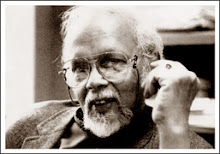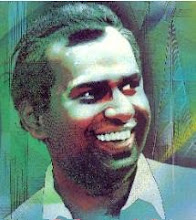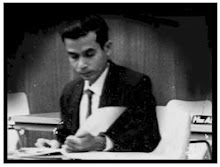Author: Sunil Thenabadu
Source:Times Online
2009-12-15 11:46:26
 |
| Henry Jayasena |
The sudden demise on November 11 of legendary dramatist, renowned actor and author Henry Jayasena who stood tall on the modest Lumbini Theatre from the early 1960’s was devastating news not only to those in his field but to all lovers of the arts.
He had confessed many times as a much adored artiste that “my heart lies in theatre”.Henry Jayasena was definitely amongst in the list of eminent dramatic figures of the calibre of Professor Sarachchandra, Sugathapala De Silva, Dayananda Gunawardena and Premasiri Khemadasa.
His enormous contribution to the theatre and films spanned almost four decades. He ended his celebrated acting career in 1999 after he recovered from cancer. The entire treatment process took over around one and a half years and he detailed it in his book titled “Balha Gilano-A story of a cancer patient” purely to educate the masses.
Henry lived a further 10 years leading a normal life during which time he revived his famous drama Hunuwataye Kathawa.
Henry Jayasena was born on July 6, 1931 in a village called Bandiyamulla in Gampaha. He was initially educated at the Gampaha branch of Lorensz College and subsequently at Nalanda College, Colombo. It was the late Dr Gunapala Malalasekera, an eminent civil servant who first predicted a great future for him in the field of acting after the famous educationist saw little Henry Jayasena acting in a school concert at Nalanda College.
After leaving school he became an Assistant Teacher of English at the Dehipe Government Primary School in Padiyapellela in the Nuwara Eliya District in 1950 when he was just 19 years. He initially ventured into stage acting by producing the drama ‘Janaki’ in the same year. As he was determined to pursue a career in the Government service, he sat for the General Clerical Service Examination and secured a job at the Public Works Department (PWD).
While working in the PWD he created new plays, the first of which was Manamalayo in the year 1953. Then came Vedagathkama in1954 and Paukarayo in1959, followed by Janelaya and the famous Kuweni in 1962.
Subsequently he produced Thavath Udesanak, Manaranjana Wedawarjana, Ahas Maliga, Hunuwataye Kathawa,Apata Puthe Magak Nethe, Diriya Mava Saha Ege Daruwo,Makara, Savana Siyath Se Puthuni Habha Yana in the years 1964, 1965, 1966, 1967, 1968, 1972, 1973 ,1975 respectively
With these creations Henry Jayasena became a household name in Sri Lanka. For his contribution towards literature, theatre and song, Henry Jayasena was honoured with the “Nalanda Keerthi Shri’ title in 2003, presented to him by the OBA of his alma mater.
Henry married talented actress Manel Ilangakoon in 1962. She played the lead in Kuweni for which she won the best actress award for her acting as well as for her singing and went on to earn acclaim for her very valuable contribution in Hunuwataye Kathawa (Chalk Circle) portraying the main female role of ‘Grushe’ for 32 years, opposite the main male character of Judge Azdak portrayed by her husband. Manel predeceased Henry after 42 years of married life in 2004.
Henry was also a popular film actor. His first role was in Sri 296 in 1959.During the 1960’s he appeared in many films, most memorable being the role of Piyal opposite Punya Heendeniya in Gamperaliya, which became an award winning film in 1964.Then he portrayed the role of Lalith in Dahasak Sithuwili in 1968.
He also played vivid roles in Hansavilak, GehenuGeta, Kaliyugaya, Raththaran Neth, Wena Swargayak Kumatada, Suhadea Sohoyurayo, Heta Pramada Vedie, Beddegana, Soldadu Unnehe,Kaliugaya, Ammai Duwai and Sandakada Pahana.
Most of his characters whether on stage, film or teledrama are imprinted indelibly in the minds of people as it was in the early 1990’s when he took the role of ‘Sudu Seeya’ in the famous teledrama ‘ Doo Daruwo’.
Henry retired from Government service in 1975. Before retiring he held the position of Deputy Director of the National Youth Services Centre ( Arts and Sports Division) and at the Sri Lanka Rupavahini Corporation (Programmes Division).
His funeral, like his wife’s was conducted in a very simple manner, according to his wishes. His close friends, relations and the ‘Kalapura Nivesi Padanama’ made all funeral arrangements at his ‘‘Kalapura’ residence and thousands of people from all walks of life paid their last respects.
His loss is  most irreparable to his only son Sudaraka, daughter -in-law Anoma (both employed at the Hatton National Bank), his two grandsons and those in the drama field especially those who were close to him from his early humble beginnings.
most irreparable to his only son Sudaraka, daughter -in-law Anoma (both employed at the Hatton National Bank), his two grandsons and those in the drama field especially those who were close to him from his early humble beginnings.
May he attain the supreme bliss of Nirvana.




































No comments:
Post a Comment